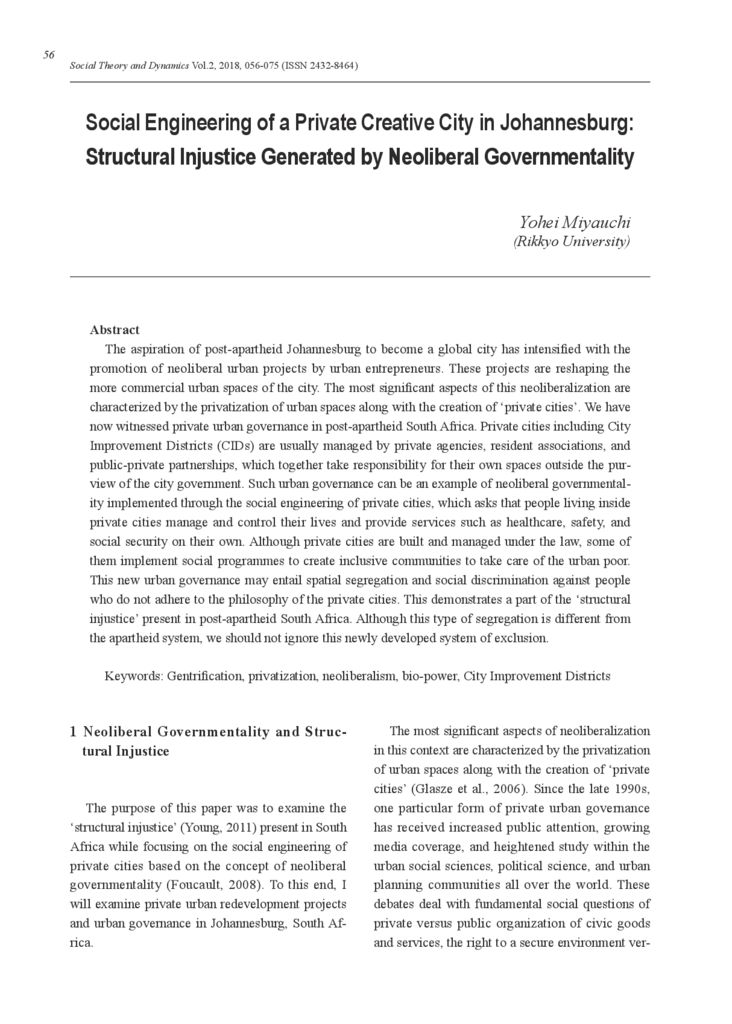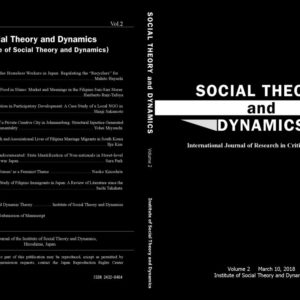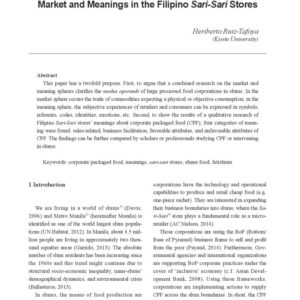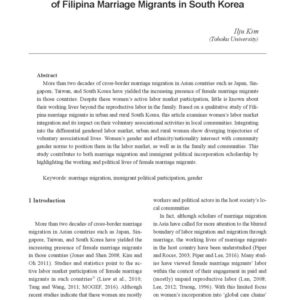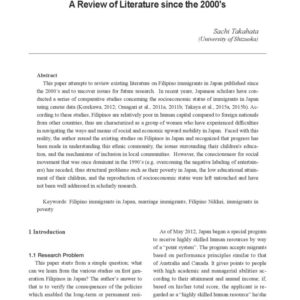Description
The aspiration of post-apartheid Johannesburg to become a global city has intensified with the promotion of neoliberal urban projects by urban entrepreneurs.
These projects are reshaping the more commercial urban spaces of the city.
The most significant aspects of this neoliberalization are characterized by the privatization of urban spaces along with the creation of ‘private cities’.
We have now witnessed private urban governance in post-apartheid South Africa.
Private cities including City Improvement Districts (CIDs) are usually managed by private agencies, resident associations, and public-private partnerships, which together take responsibility for their own spaces outside the purview of the city government. Such urban governance can be an example of neoliberal governmentality implemented through the social engineering of private cities, which asks that people living inside private cities manage and control their lives and provide services such as healthcare, safety, and social security on their own.
Although private cities are built and managed under the law, some of them implement social programmes to create inclusive communities to take care of the urban poor.
This new urban governance may entail spatial segregation and social discrimination against people who do not adhere to the philosophy of the private cities.
This demonstrates a part of the ‘structural injustice’ present in post-apartheid South Africa.
Although this type of segregation is different from the apartheid system, we should not ignore this newly developed system of exclusion.

